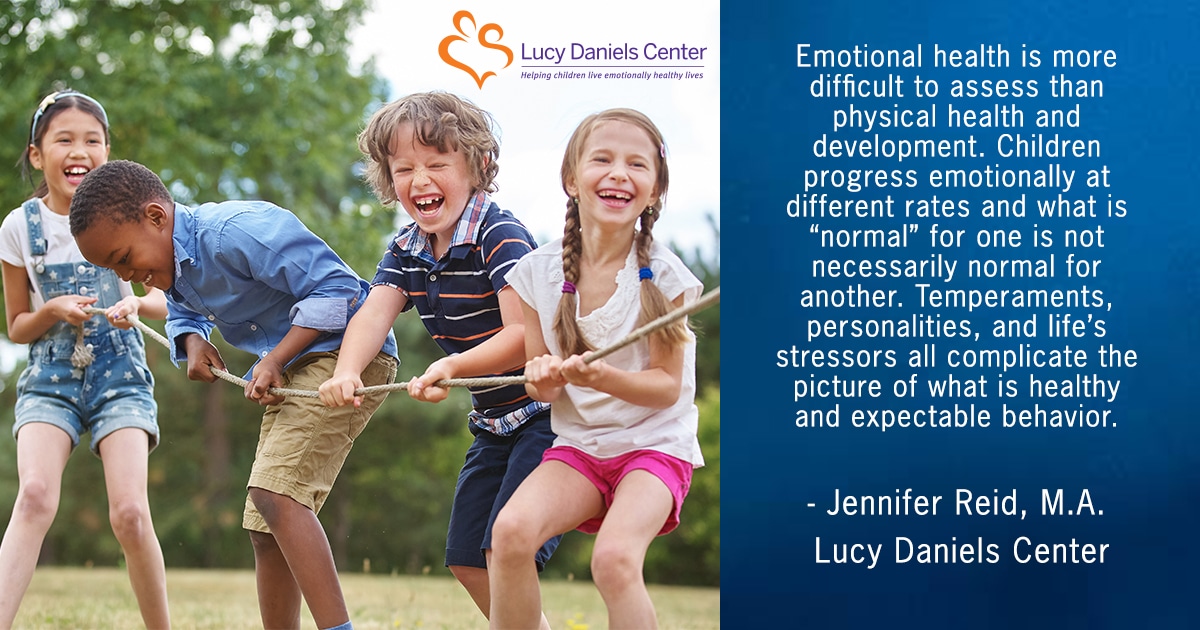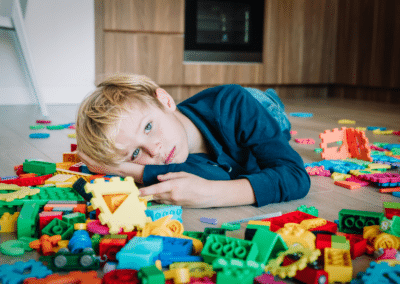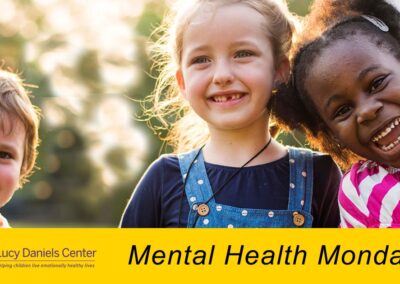Children’s Emotional Wellness
Supporting and Measuring a Child’s Emotional Well Being
You take your child to the doctor for routine wellness checks. You take her to the dentist to clean her teeth and check for cavities. You do your best to make sure she eats well, gets enough vitamins and nutrients, and is active and fit. All of these steps measure and support the health and wellbeing of a child’s physical development, but what do we do when it comes to emotional development?
Emotional health is more difficult to assess than physical health and development. Children progress emotionally at different rates and what is “normal” for one is not necessarily normal for another. Temperaments, personalities, and life’s stressors all complicate the picture of what is healthy and expectable behavior.
Children are developing in an emotionally healthy way when they are generally reasonably content and also are able to successfully participate in and also cope with day-to-day routines and activities in age-appropriate ways. Children should be able to meet these age-appropriate activities without parents and teachers regularly making special accommodations or exceptions. Such activities include, but are not limited to:
- comfortably leaving a parent to go to school
- participating in a range of activities in a school or social setting (circle time, group activities, special classes such as music or art class, play dates)
- making and playing with friends
- gradually taking over self-care tasks both at home and at school (toileting, dressing, eating)
- going to bed/sleeping at night
Let’s say a child has some difficulty in one area, such as independently going to sleep at night, but otherwise is moving along and developing in the other areas. Is there cause for concern? To answer this question, we will use four measures of whether the emotional issue – in this case, feeling safe at night – is just a bump in the road or a sign of a deeper issue.
- The pervasiveness of the symptom
Does your child need just a little extra support (one more story or some time to cuddle) and then go off to sleep, or is he dependent upon an adult sleeping by his side through the night? Is it a recent development or is it something that has been going on for a while? Does not giving in to every request cause some mild discomfort for the child, or are there tantrums or meltdowns?
- The coexistence of challenges in other social and emotional areas
Does the separation at nighttime seem to be an isolated difficulty (your child is carrying on and functioning comfortably otherwise) or are there struggles in other areas? Have separations in general (letting a parent or adult out of sight, going to school, being with a babysitter or other caregiver) been challenging for a while? Do you find yourself making accommodations in a number of areas to avoid excessive disruption, upset, or tantrums? Are there struggles at school or in your child’s ability to make or play with friends or is he or she dependent upon a connection with an adult?
- The general path of the child’s development
Does your child’s ability to cope with the problem seem to be progressing, or does it seem like she is stuck? In many cases, slight regressions occur throughout development and children gradually work their way through them, making little steps of progress and moving along in a general direction. Does the child seem to be moving along in other areas of development (going to school, participating in group times at school) despite the trouble at nighttime?
- The modifications being made by adults
How often are accommodations or special arrangements made to support your child’s day-to-day activities? Does the difficulty interfere with your family’s routine? Do you find that your family is not able to do all that you would otherwise do if it were not for the particular difficulty?
There is no standard measure to know when to seek help for aspects of a child’s emotional development. We advise parents who are unsure to seek an initial consultation with a qualified professional and sort out whether a further evaluation is sensible. A first call is a big step, but it is generally one that will either provide reassurance or begin the process of finding the right kind of help for your child and family.



